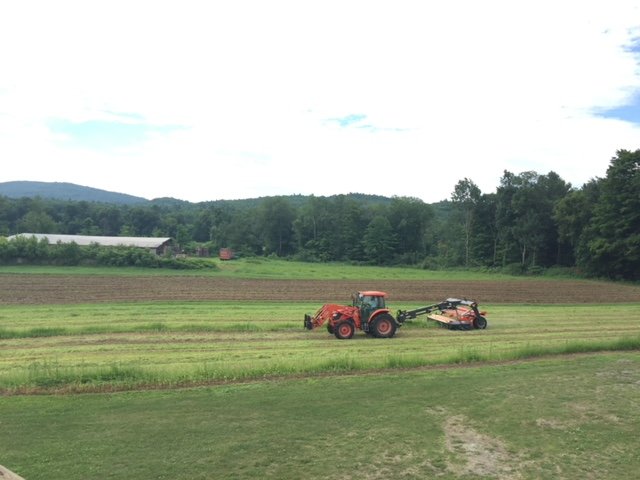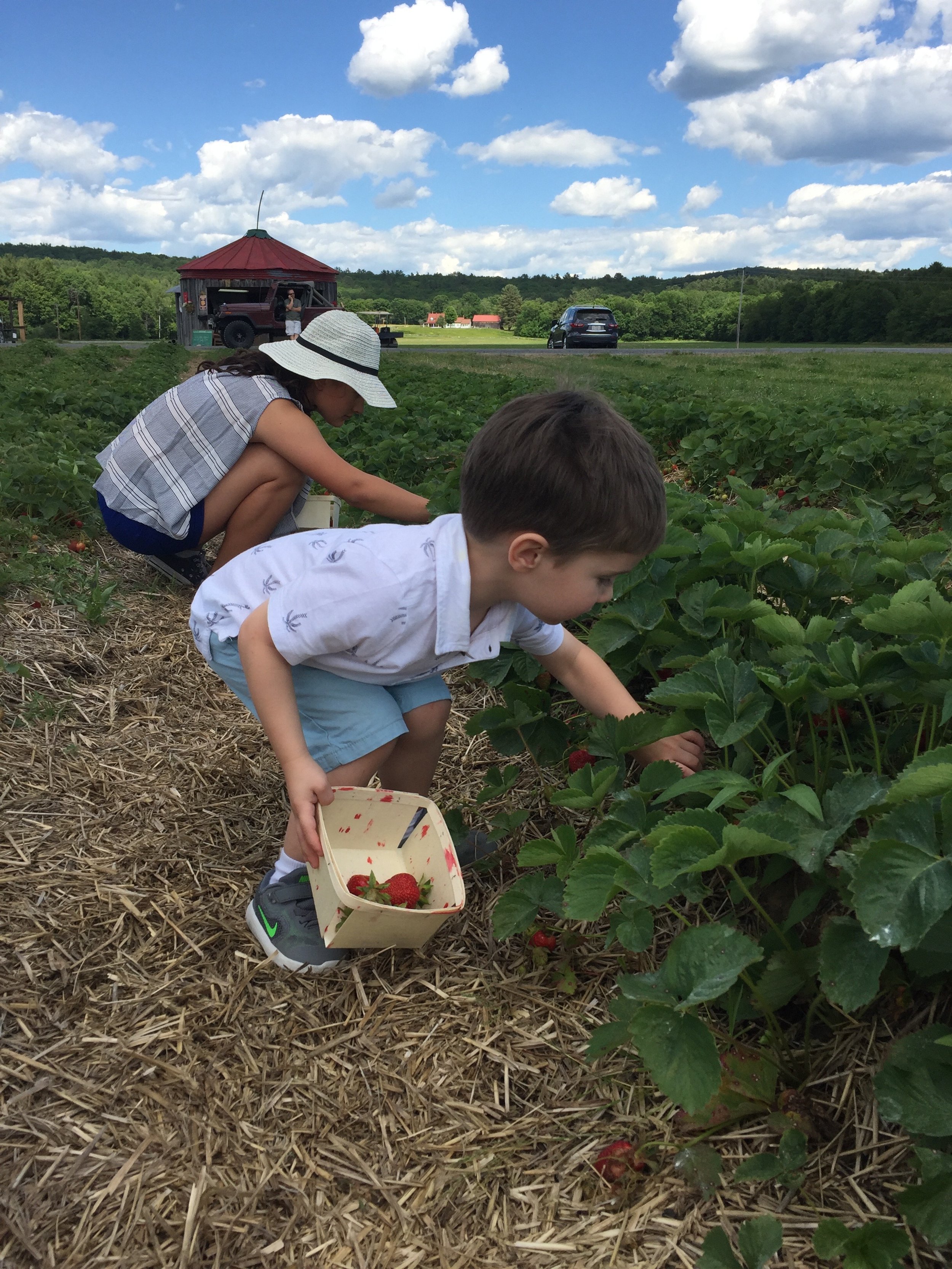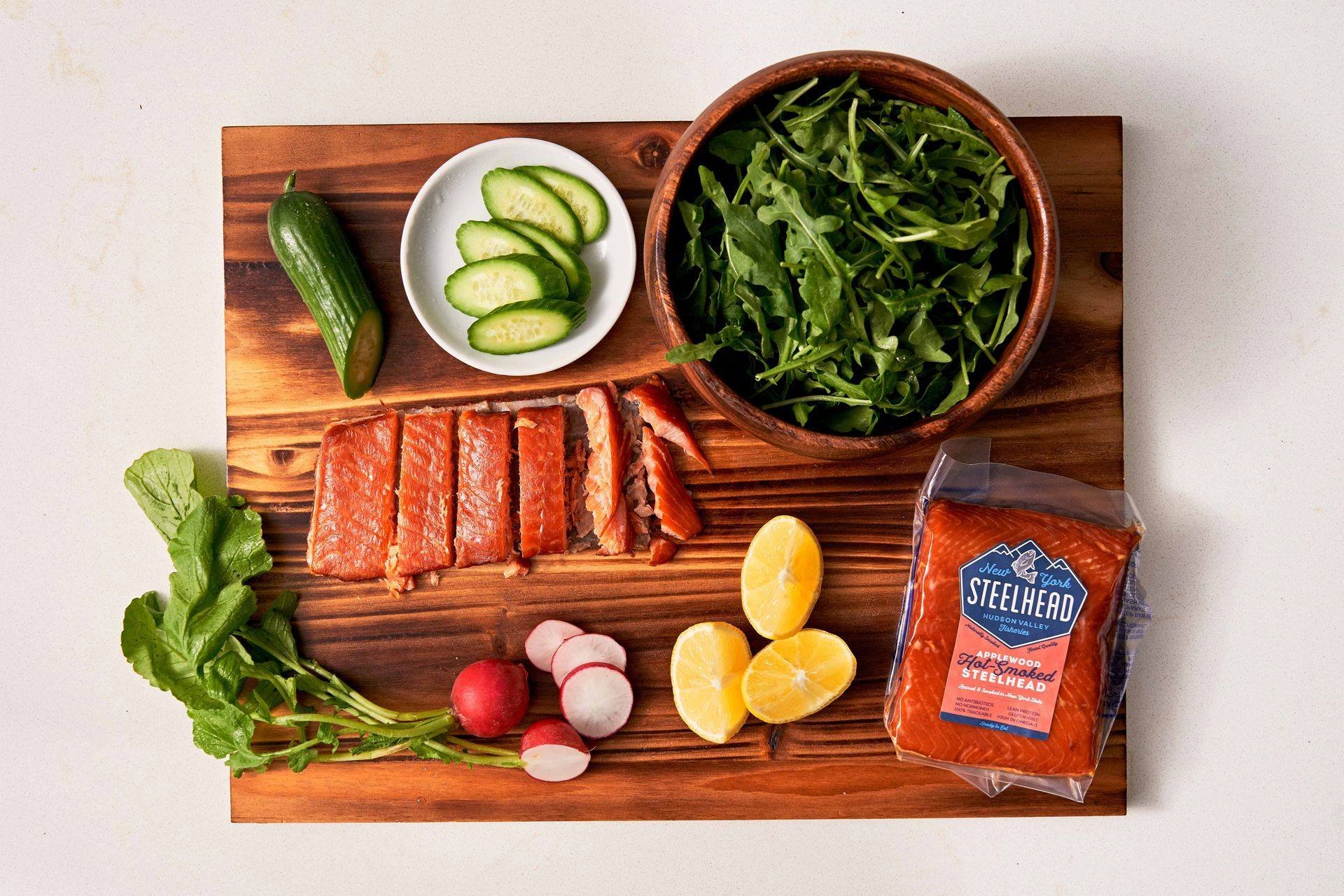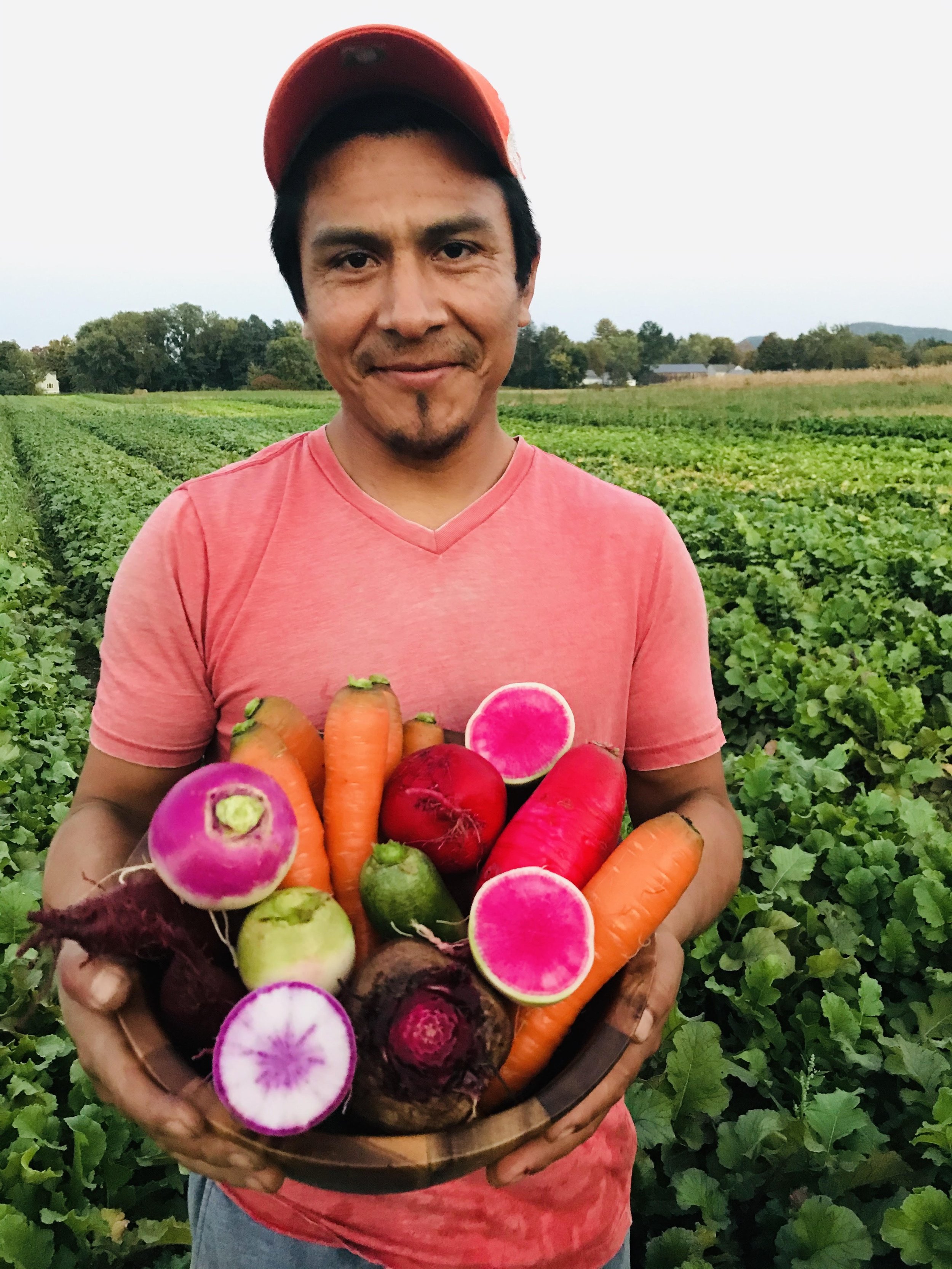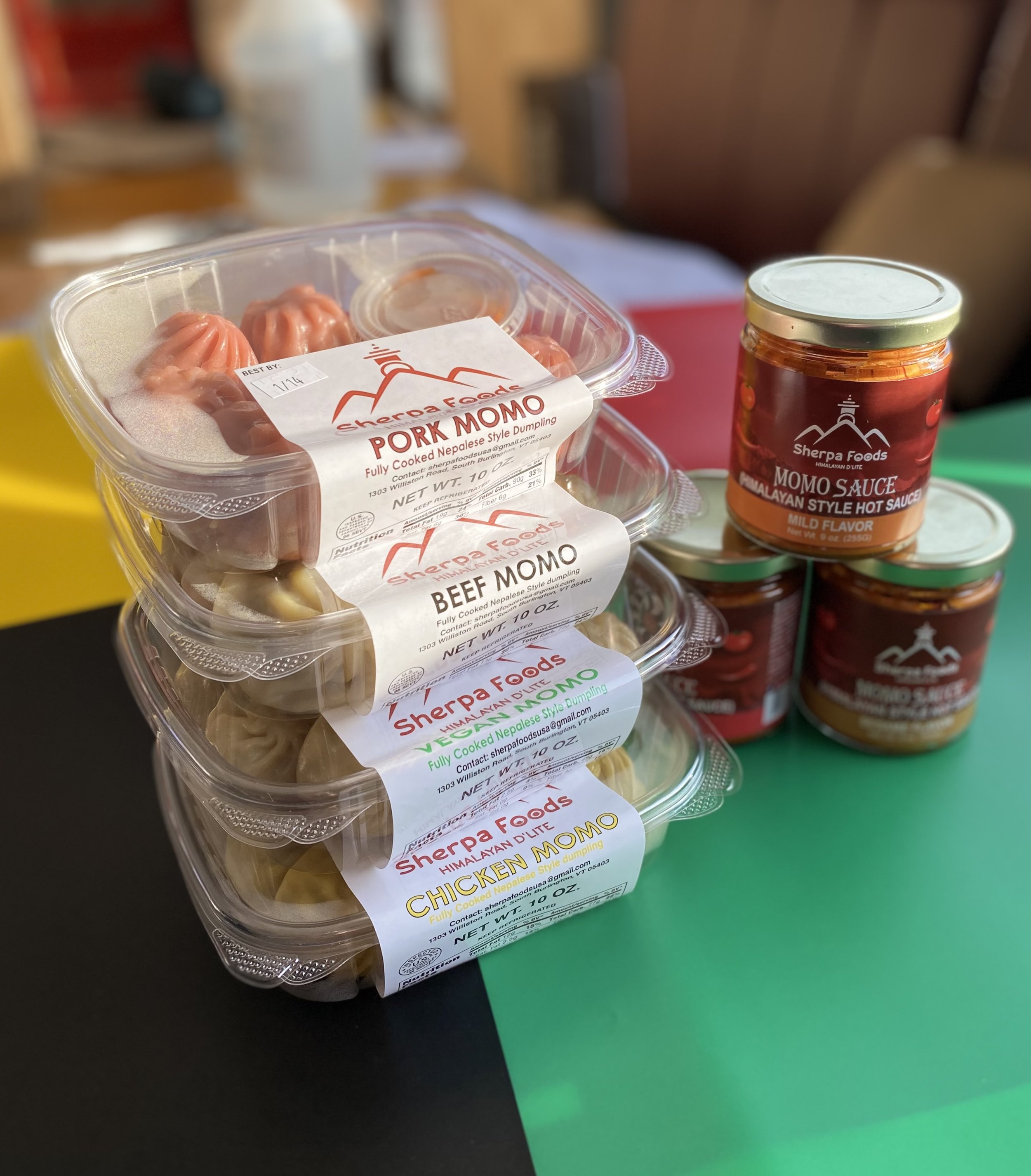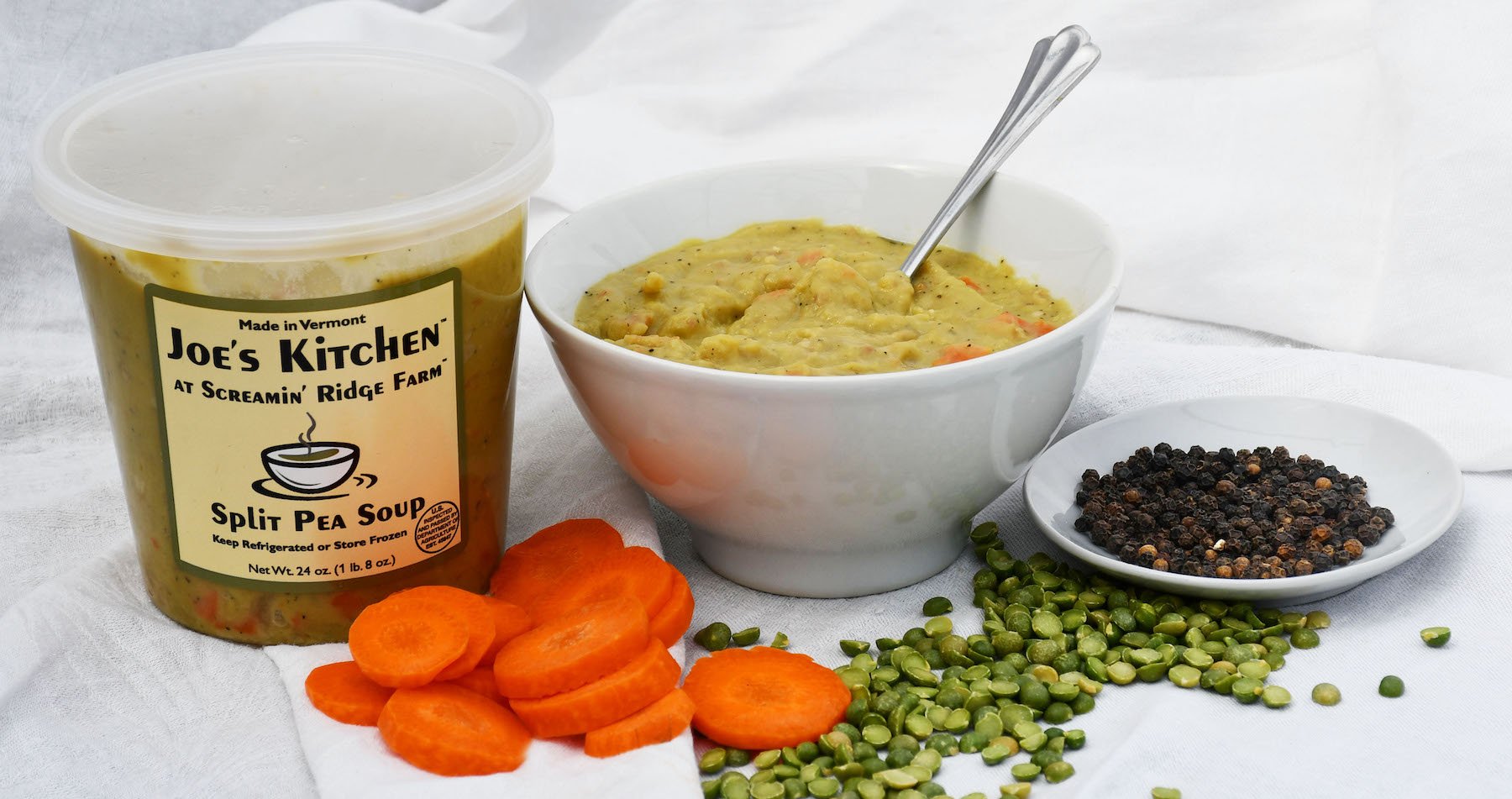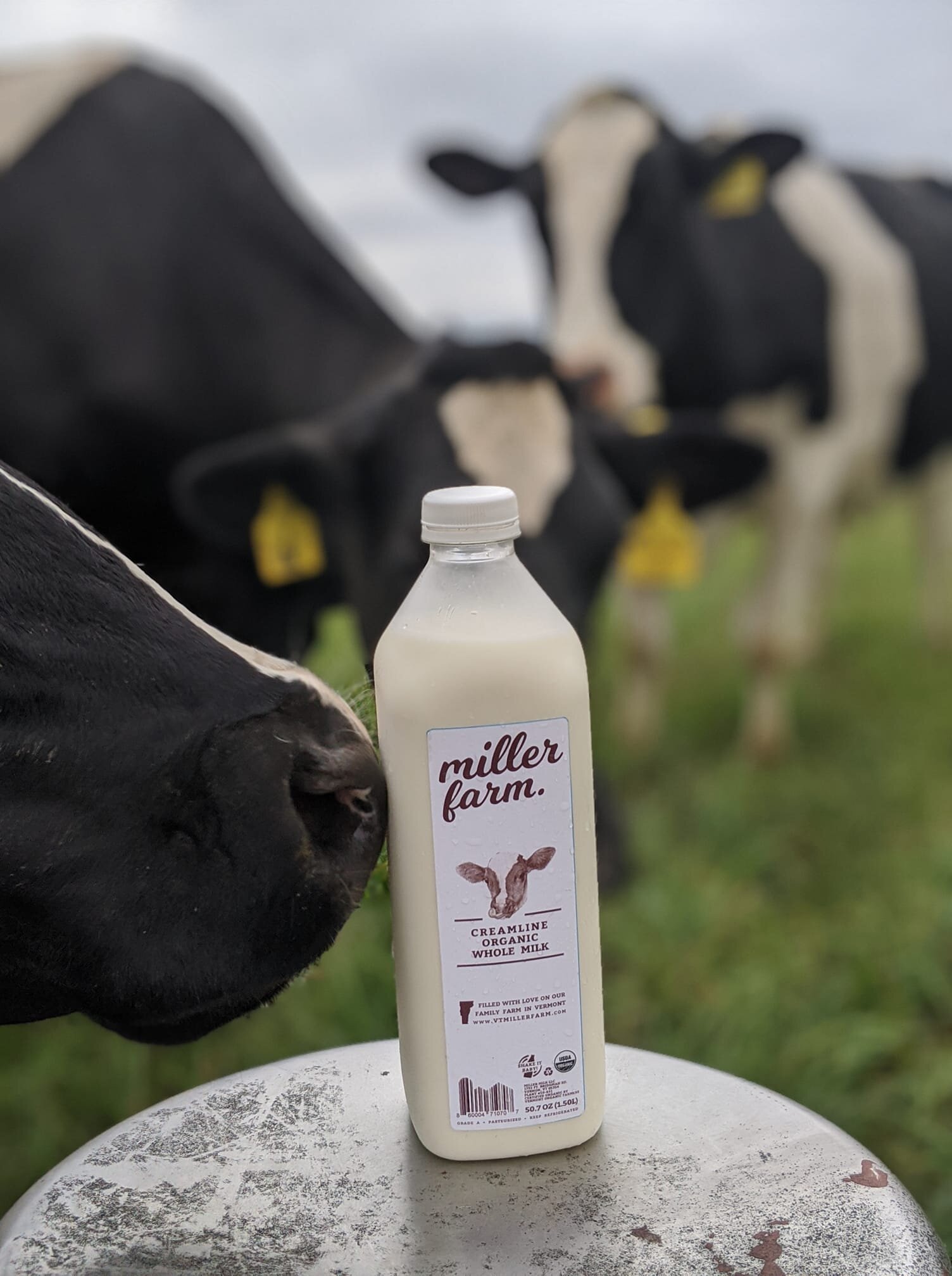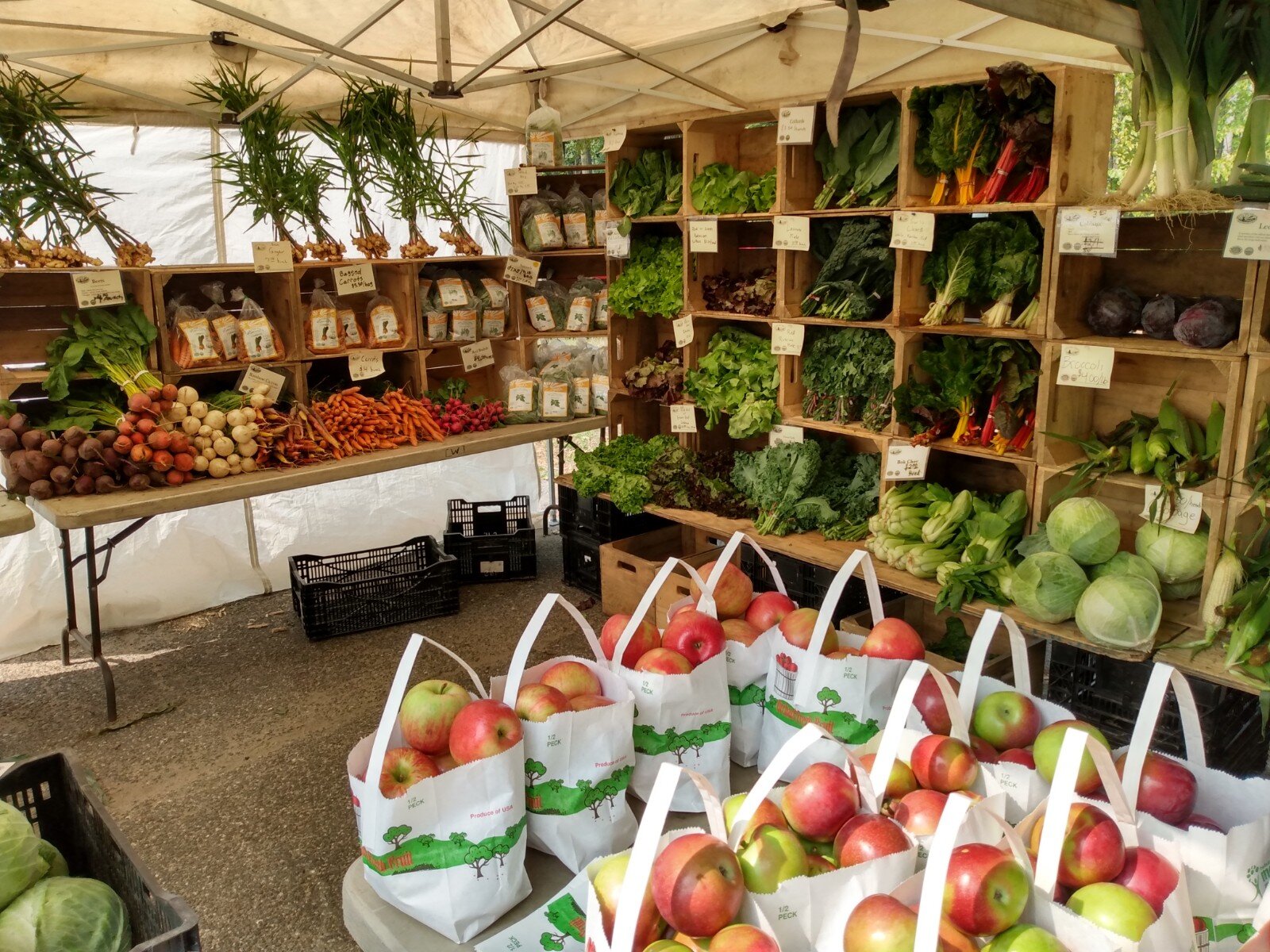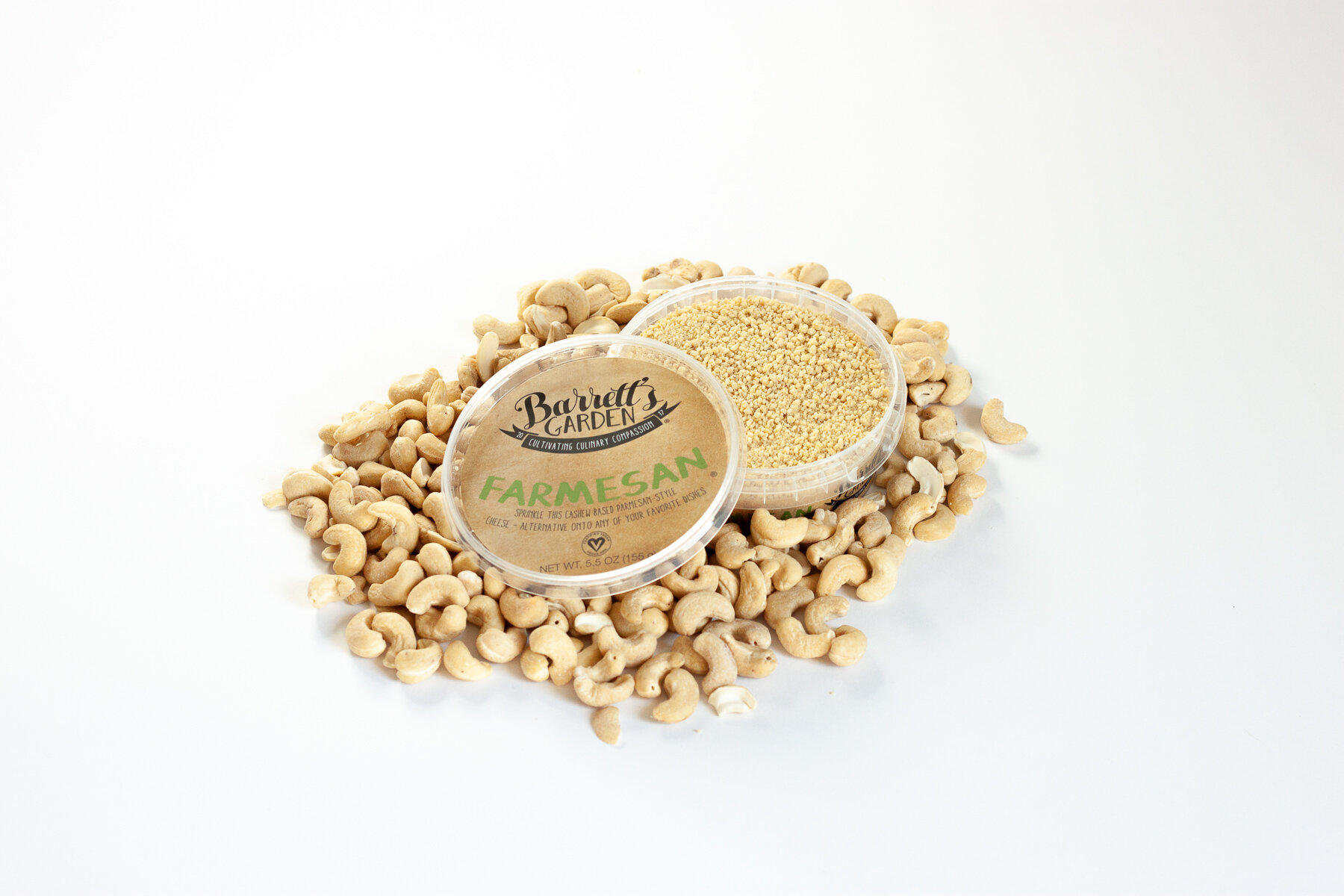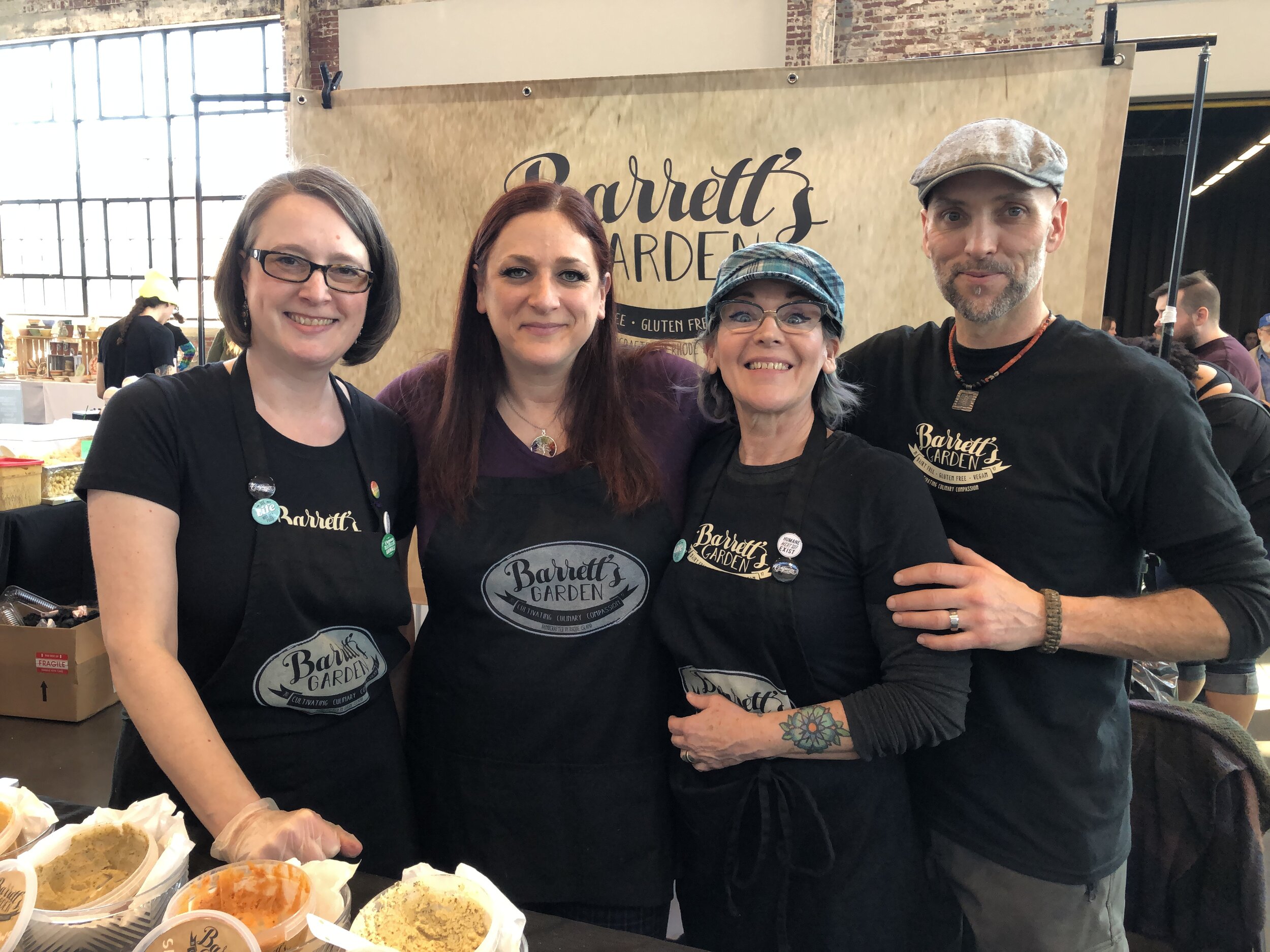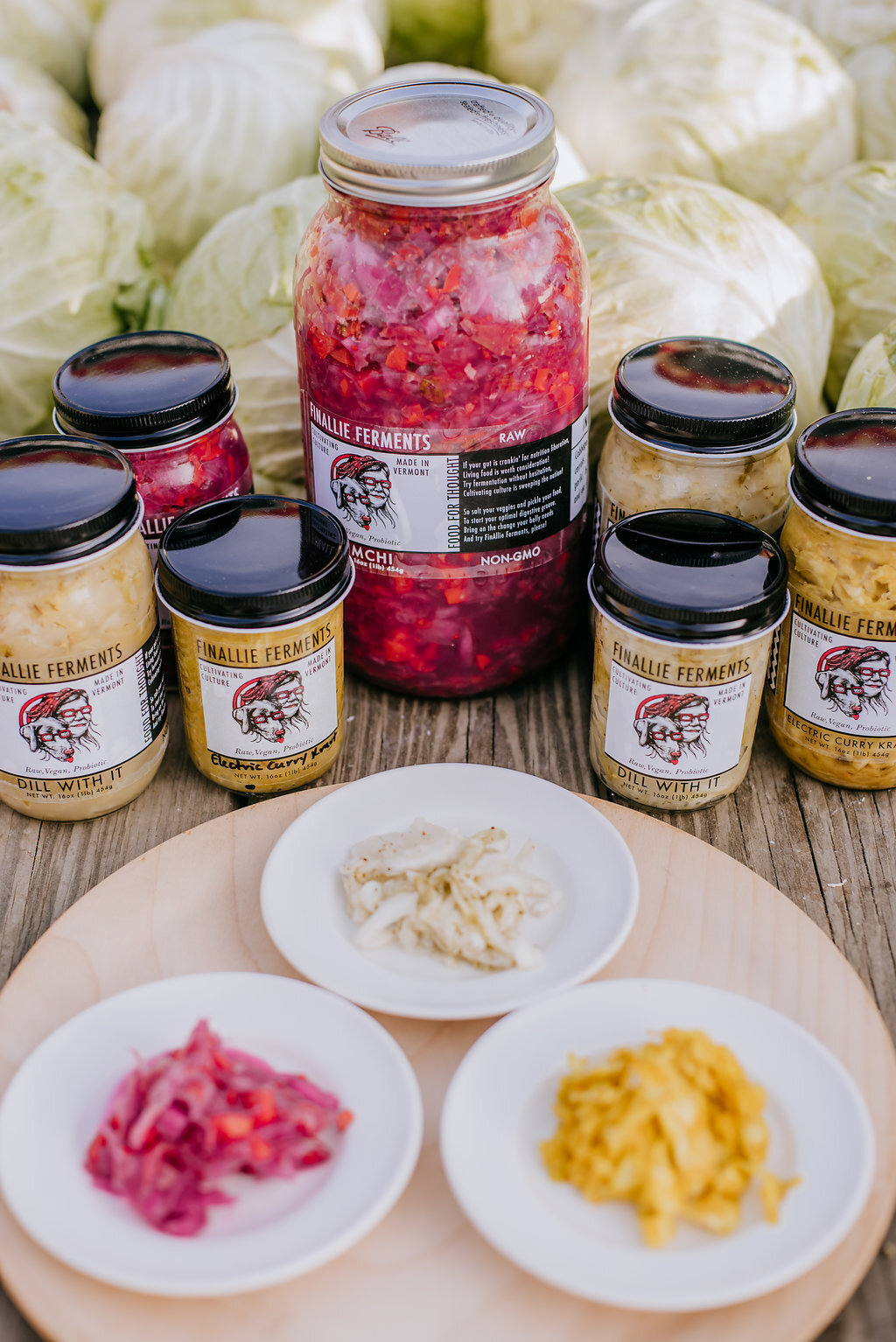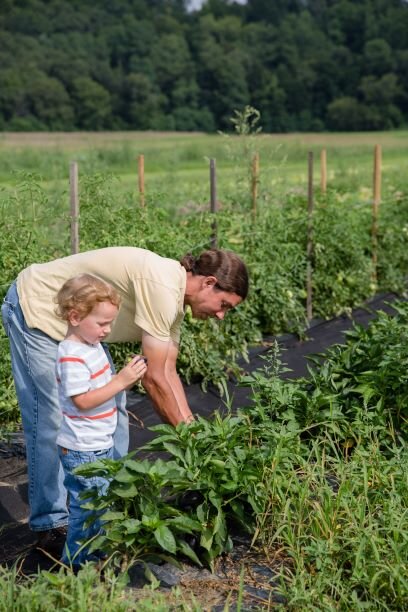One of our favorite parts of running the Food Connects Food Hub is distributing local and regional food to local and regional people. Peachblow Farm shares this mission, focusing on crops that thrive in our region and that local customers demand. With Food Connects customers, that’s their hardy and delicious asparagus! We had a chance to ask Heidi Fuller of Peachblow Farm about the family farm and their approach to growing food in New Hampshire.
How was Peachblow Farm started? What was its inspiration?
Peachblow Farm has been in the Frizzell family for almost 100 years, and it spans four generations. Theodore and Martha Frizzell purchased the farm, and for many years it was dairy and poultry breeding. It was passed to Robert (Bob) Frizzell in the late 1960s and was primarily dairy at that time. In 1988, the dairy was sold out to a federal milk surplus program, and the focus shifted to crops. Pick-your-own strawberries were started prior to this and continue to this day. Asparagus, hay, and seedless straw have also been added.
What makes your products unique?
Robert Frizzell was born and raised on Peachblow Farm. He has seen the progression of the farm from animals to crops and has enough experience with all of it to know what works best. Our products come out of his 84 years of experience and expertise.
Can you tell us more about your approach to farming?
Our approach is threefold—we seek out crops that grow well in our area; they must be crops that are in demand, and they must fit into our labor availability.
We have found success with asparagus because our land has the right type of soil and our family has expertise in how to successfully plant it. So in the past 30 years, we have grown to about 10 acres of asparagus, with some of the fields still gaining in production as they mature. This is the product we sell most to Food Connects. We have found that there is a great demand for the asparagus as we seem to be one of few farms in the area growing it. It fits into our labor availability because it is the only crop in the spring.
What is your favorite part of farming?
Robert believes that to be a successful farmer, you have to be an inventor of sorts. In order to make machinery that fits your fields and does all the required tasks, you must be able to create new and unique pieces of equipment. Robert enjoys this part of the farming, and it is what has enabled him to have a farm that fits the Farm of Distinction criteria for the state of New Hampshire.
What is one of your favorite recipes you make with your produce?
Our favorite way to eat asparagus is to steam it and top it with a family aioli recipe.
Why is buying and selling locally and the local food movement important to you?
As we said in our approach to farming, we choose crops that grow well and are in demand in our area. That feeds right into the philosophy of the local food movement.
How does working with Food Connects help your business/what are you excited about in this partnership?
As our production of asparagus has grown, we are not able to sell it ourselves and need to find outlets like Food Connects that have the market for what we are producing. In that way, we can continue to focus on increasing the production and make sure it is satisfying consumer demand.
Any events coming up or fun facts about your business/products?
Our asparagus runs into our Pick-Your-Own strawberry season coming up in late June. This year we may also have pick-your-own sunflowers to add.
Anything else you would like me to feature? Anything that you are doing to respond to the COVID-19 crisis?
One of the by-products of producing strawberries was the production of seedless straw to mulch the strawberries. That has become its own market because, without seeds, the straw can be used in many more applications such as landscaping, straw bale gardens, and even home insulation material. You can read about the harvest process for seedless straw on our website, PeachblowFarm.com.
We found that Pick-your-own strawberries was very popular during COVID-19 because it provided families with a wholesome activity they could do safely outdoors. Our family has had Pick-Your-Own strawberries for over 40 years, and we welcome children. We have people who picked here as a child bringing their own children. It is very gratifying for us to be able to continue this tradition.



